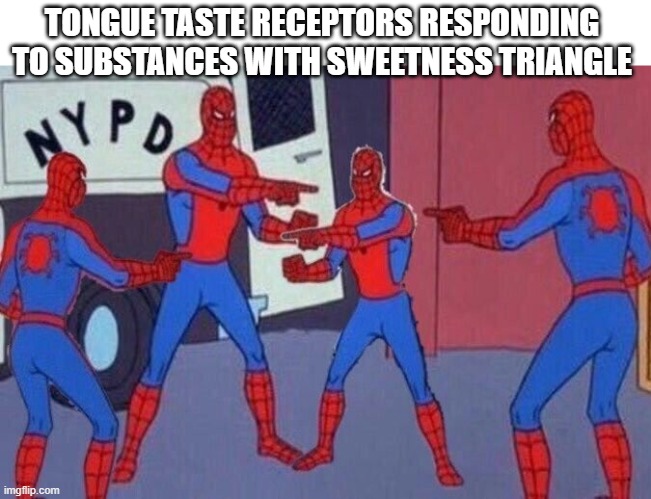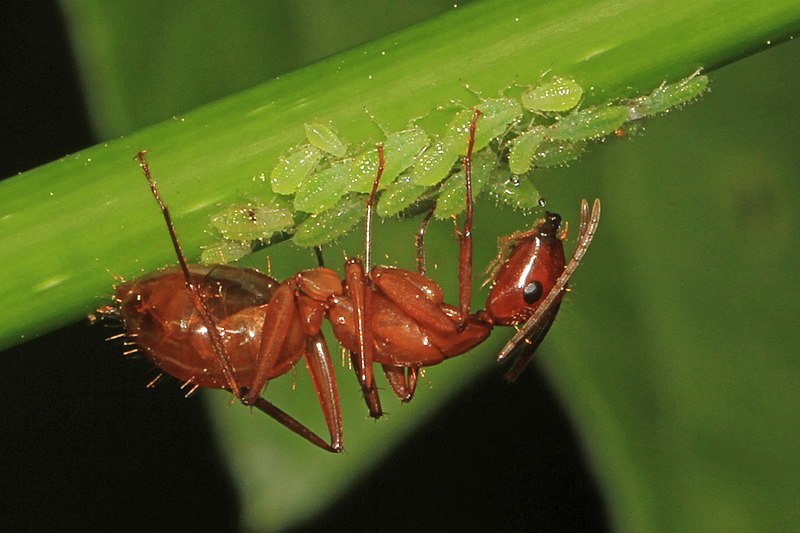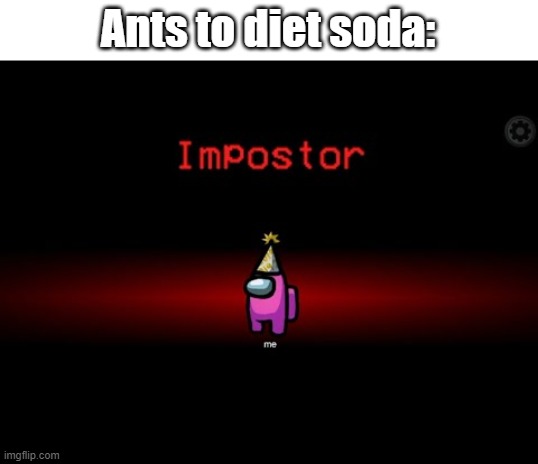Table of Contents (click to expand)
No, ants are not attracted to diet soda. Diet soda is sweetened using artificial substitutes, such as aspartame, which are perceived to be sweet, but do not entice ants.
When you drop or spill something sweet on the floor and forget to clean it up, there’s a good chance that when you come back in the room, you will find an army of pesky little insects scurrying around that sticky spot. Ants, with their high-definition sense of smell, can sniff out food from quite a long distance, and they do seem to have an affinity towards the food we consider sweet.
Diet sodas, despite their lack of sugar, are still quite sweet… to us humans, at least. But does the artificial sweetener in a diet soda tickle the ants’ sweet radar? Or is it just our taste buds tricking us?
The Chemistry Of Sweetness
As soon as we place any food on our tongue, the taste receptors jump into action. They are the guards that are always on the lookout to keep noxious foods away from our system. The shock you feel when you eat something bitter is your body using its evolutionary data to warn you against poisonous food.
On the other hand, when you eat something sweet, the taste receptors register it as safe to eat and greenlight the food reward centers in your brain to release the happy hormones.
To read more about our love for sweet foods, please check out: Why do we crave sugar?
So, how do our tongue and its taste receptors decide which food is sweet? By interpreting simple chemical cues.
Cane sugar, honey, and many fruits get their sweet taste from molecules such as sucrose, glucose, and fructose. These molecules have completely different molecular structures when compared to artificial sweeteners, such as saccharin, aspartame, or stevia.
Yet we find them all sweet because they share a common structural feature known as the triangle of sweetness.

The first corner must have functional groups that can form hydrogen bonds with O and N atoms found in the taste receptor proteins. The second corner needs to be a basic atom that can attract N-H and O-H groups on the taste buds. And the final corner must be any hydrophobic functional group.
Any molecule that possesses all of these features can easily bind with the taste receptor protein and lock, load, and relay the signal for sweetness. The better a molecule fits in the receptor, the sweeter it tastes.

Also Read: Why Does Bitter Food Taste Bad?
Why Do Ants Have A Sweet Tooth?
The reason behind ants’ sweet tooth is survival. Just like any other creature on this planet, ants require energy to keep their cells functioning. Sugars and carbohydrates are calorie-dense foods that pack a huge amount of energy, enough to fuel ants for a long period of time. Also, ants evolved alongside flowering plants, who used ants as their defense against other bugs and paid them with sugar water usually secreted by flower blossoms or bark.
To fulfill their sugar needs, ants also farm smaller soft-bodied insects known as aphids.

A high-carbohydrate diet not only gives them nourishment, but also provides them with an evolutionary advantage. The energy provided by sugary foods is redirected to a special gland present in their body that secretes antibiotics. Ants then spread these secretions on their exoskeletons, which protects them from fungal infestations.
Scientists have also found that ants become more peaceful and show less aggressive behaviors towards other ants when they are in a carbohydrate-abundant environment. To read more about the diet of ants, click here.
Also Read: What Do Ants Eat?
Are Ants Attracted To Diet Soda?
No, they aren’t. Diet sodas are sweetened using artificial substitutes, such as aspartame, which are perceived to be sweet, but do not entice ants. These sugar-free sweeteners have very low to no caloric value, which means tat it passes through the system without providing any energy.
This might be advantageous for us human beings, who want to have something sweet without piling up on calories, but they’re of no use to ants, who are attracted to sweet things only because of the calories they provide.
It has also been found that some artificial sweeteners can increase the mortality rate in insects like ants. The jury is still out on the mechanism, but theories suggest that such findings could be due to dehydration, indigestibility, buildup in the digestive tract, or osmotic imbalance.
A few amateur and laboratory experiments have led us to a conclusion that ants do not like diet soda. A few of them might give your spilled pool of soda a visit out of curiosity, but rest assured that they won’t call upon their entire battalion to feast on the puddle.

How well do you understand the article above!

References (click to expand)
- Tricking Taste Buds but Not the Brain: Artificial Sweeteners .... Scientific American
- Ants have an exceptionally high-def sense of smell. Vanderbilt University
- Lee, S.-H., Choe, D.-H., & Lee, C.-Y. (2020, November 6). The Impact of Artificial Sweeteners on Insects. (M. Isman, Ed.), Journal of Economic Entomology. Oxford University Press (OUP).
- Fernstrom, J. D., Munger, S. D., Sclafani, A., de Araujo, I. E., Roberts, A., & Molinary, S. (2012, June). Mechanisms for Sweetness. The Journal of Nutrition. Elsevier BV.
- Chinarelli, H. D., Pupe, A. E., & Leal, L. C. (2020, October 2). Peace, sweet peace: ants become less aggressive when carbohydrates abound. Ecological Entomology. Wiley.
